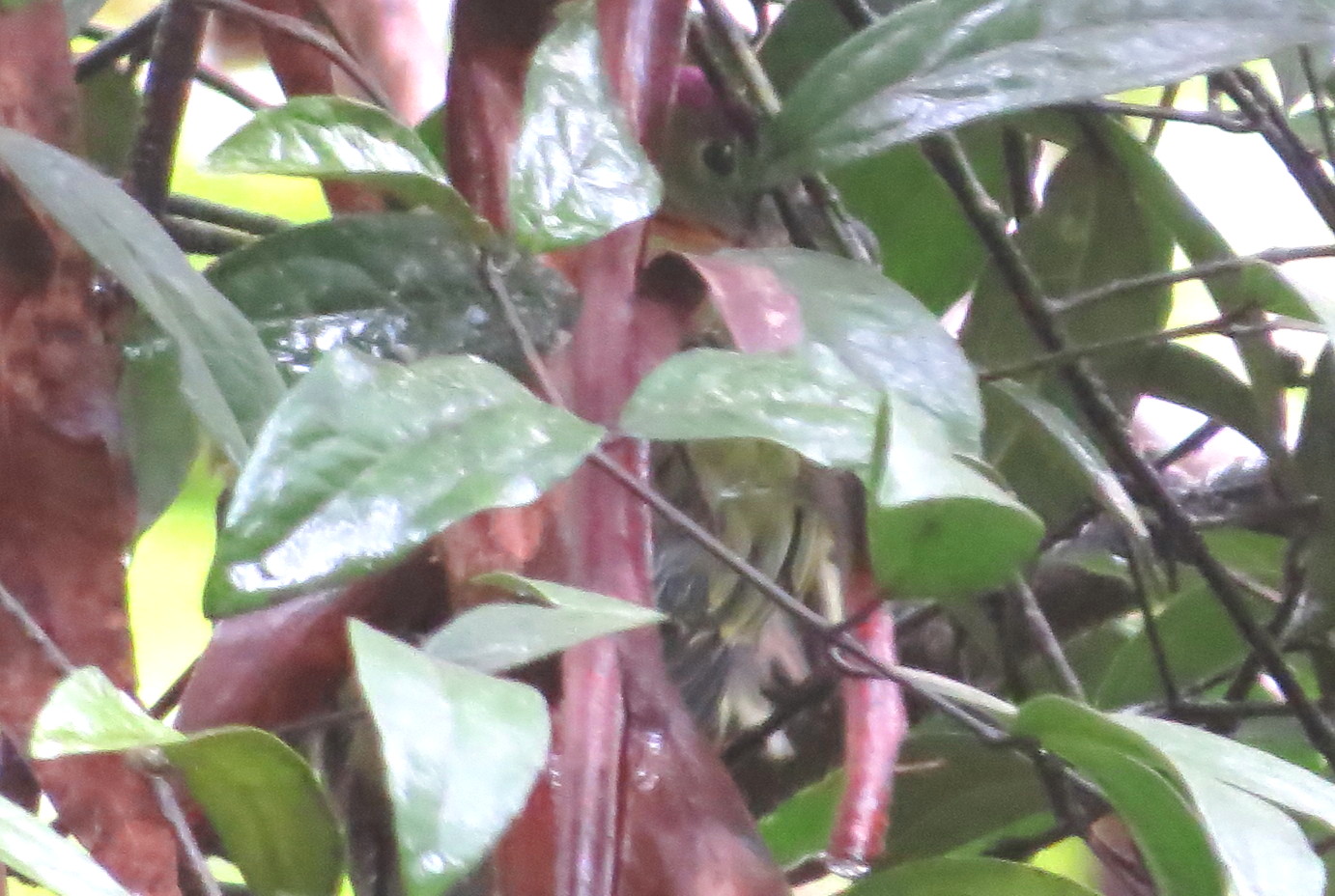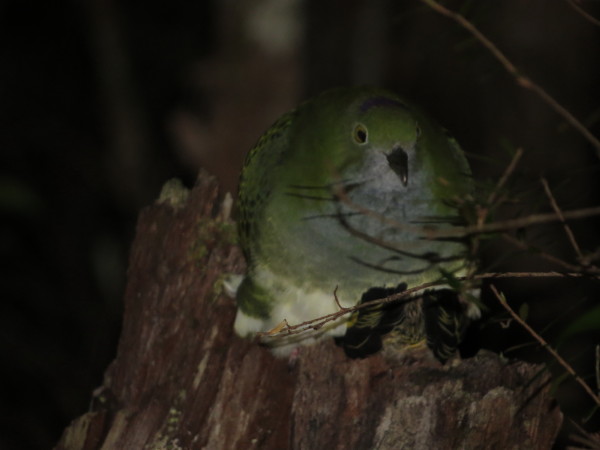
Every summer Superb Fruit-Doves (Ptilinopus superbus) come here to take advantage of the fruiting trees, shrubs and vines in our forest. The first birds arrived in October, but their numbers greatly increased in January, and we can hear them calling all around us. They are particularly vocal for a few hours in the morning and again in the late afternoon. When they are breeding, they are sharing incubation duties, with the female sitting from about 5pm to 8am and the male sitting during the day.
Superb males are very colourful and easy to identify:
The female is mainly green and white, with a purple cap:
It might seem difficult to image how such a colourful bird can hide from predators, but try to spot the male dove in this photo: He is in the centre, looking at me over his back.
He is in the centre, looking at me over his back.

When the rain eased a little, he emerged to pick a few fruits:

Other birds have discovered the abundance of fruit, too. Several species of Honeyeaters, Silvereyes and many Satin Bowerbirds are having a good feed. This young male bowerbird is one of several visiting the Symplocos tree near our veranda many times a day. 
Another regular visitor is this male Olive-backed Oriole:
The last few days the doves have been quieter than usual, maybe because those two predators are hanging around more often. Grey Goshawk:
Collared Sparrowhawk:
Superb Fruit-Doves are very nervous when building their nest, so we try not to disturb them and avoid going on regular walks in the forest during their main breeding period. Once they start incubating their single egg, they are quite approachable, but I would never go near a nest. I stumbled across this one while spotlighting 2 years ago, the nest was right next to our walking track on an old tree stump. After taking one photo from a distance, I quickly left. You can see the chick’s back sticking out from underneath mum’s belly. 
It takes only about a week from hatching to fledging (you don’t want to be a sitting duck for longer than necessary with those birds of prey around!), and several juvenile doves have joined the adults searching for food and exploring the forest.


A juvenile male or female? We have to wait and see…
Today is a beautiful sunny day, I couldn’t resist taking more footage: Two males were hanging out in the Symplocos for about 2 hours, picking a few fruits, then having a rest before eating a few more. Very relaxed, seems they’ve finished with brooding duties for this season. They wear pretty pants, too:
Their brilliant colours make them quite easy to see:
